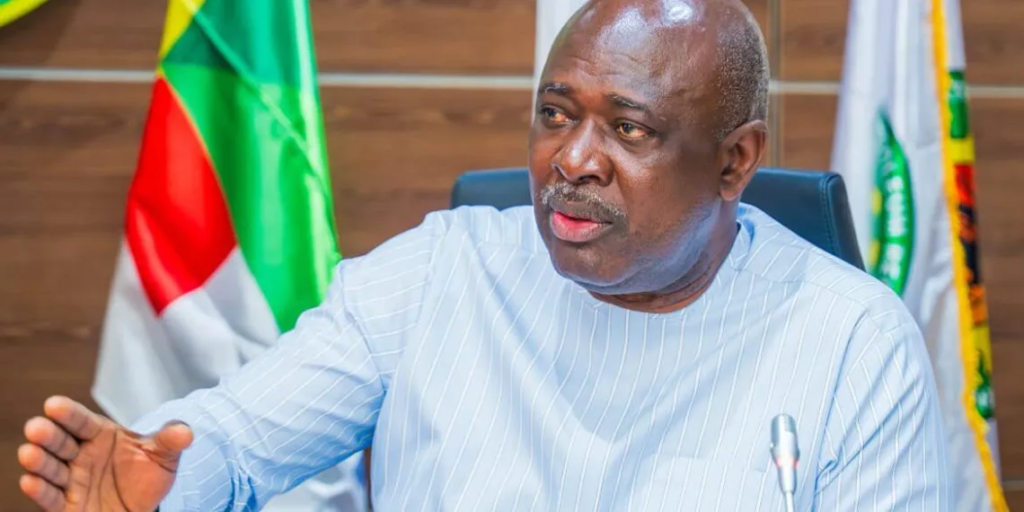
The Minister of State for Petroleum Resources (Oil), Heineken Lokpobiri, has urged the National Assembly to reconsider its frequent and often unnecessary invitations to International Oil Companies (IOCs) and the Nigerian National Petroleum Company Limited (NNPC Ltd), warning that such actions are disruptive to the country’s oil and gas sector.
Speaking on Tuesday in Abuja during the opening of the 2025 Nigeria Oil and Gas (NOG) Energy Week, Mr. Lokpobiri expressed concerns that the regular summons by lawmakers were harming the operations of the oil industry.
“One of the major complaints in the industry is the frequency of summons by the National Assembly. These should be reduced. As a former senator, I understand the consequences of such actions. Before summoning, lawmakers must assess the issues critically and make necessary consultations,” the Minister stated.
He emphasized the inefficiency of summoning IOCs over procurement issues that occurred many years ago, labeling such actions as “unwarranted” and counterproductive.
“What is the rationale behind summoning the IOCs over procurement issues that happened years ago? These actions are unnecessary and have no substantial impact,” Lokpobiri added.
Executive Branch’s Call for Legislative Restraint
This call for restraint from the executive is not new. In March 2024, President Bola Tinubu, a former senator himself, also urged the National Assembly to show discretion in summoning heads of ministries, departments, and agencies (MDAs), stressing the importance of balancing oversight with effective governance.
At a Ramadan Iftar gathering, the President noted that while oversight is crucial for ensuring transparency and accountability, excessive summoning can disrupt operations and hinder service delivery to citizens.
Constitutional Oversight Powers
The Nigerian Constitution grants the National Assembly the authority to summon public officials for oversight purposes. Sections 88 and 89 of the Constitution empower the legislature to monitor and investigate the activities of MDAs, including the ability to summon individuals and request documents for review.
Despite this mandate, critics argue that some investigations are politically motivated, rather than aimed at ensuring accountability. In a notable investigation by Premium Times in August 2023, a House of Representatives ad hoc committee investigating job racketeering was accused of demanding bribes from heads of MDAs and educational institutions, tainting the integrity of the process.
The Impact of Frequent Summons
Despite the formation of various ad hoc committees and frequent legislative probes, there have been no conclusive reports or sanctions emerging from these investigations. The NNPC Ltd has recently expressed concern that repeated summons by the Senate Committee on Public Accounts, particularly over the alleged missing N210 trillion, could undermine public trust in government institutions.
Lokpobiri echoed these concerns, urging lawmakers to consider the long-term effects of overstepping their oversight functions.
As the executive and legislative branches continue to clash over the limits of parliamentary power, many are left questioning whether the frequent legislative probes truly serve the best interests of Nigeria’s oil and gas industry.
